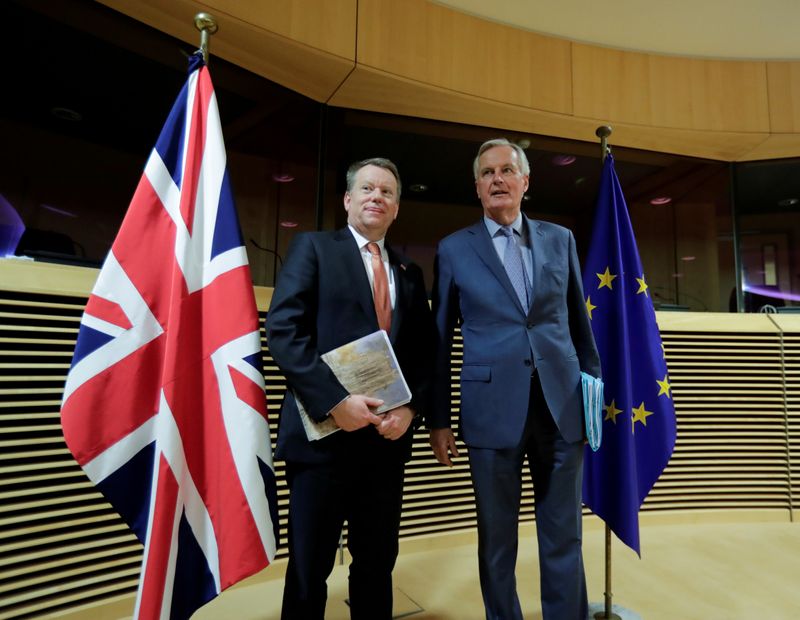
Step up your no-deal Brexit plans, EU tells banks in Britain
by ReutersBy Huw Jones
LONDON (Reuters) - Britain's financial services sector should be ready for a no-deal Brexit when a transition period with Brussels expires in December, a senior European Union official said on Wednesday.
Britain left the EU in January, but firms still have unfettered access to the bloc until the end of the year.
Paulina Dejmek-Hack, director of the European Commission's task force for relations with Britain, said EU assessments on whether UK financial rules were "equivalent" to those in the bloc - which could allow some direct market access to continue from January - were ongoing.
Equivalence can be granted to "third countries", or non-EU states, in a limited range of activities like clearing derivatives and trading shares. It excludes basic banking, which has forced lenders in Britain to open subsidiaries in the bloc.
Dejmek-Hack said that "under all circumstances" the reality for financial firms in Britain from next January would be very different from today, regardless of possibilities of equivalence.
"A lot of preparations went into no-deal and it's important that these kinds of preparations are taken up again," she told a webinar held by IIF, a global banking lobby.
Over the longer term, the EU would weigh equivalence based access with the need to develop its own banking and capital markets, she said.
"Today we have a financial sector in Europe which is extremely dependent on London ... but of course, long term we need reflection on what kind of dependence one would want to have on a third country," Dejmek-Hack said.
Martine Doyon, head of government affairs for Goldman Sachs (NYSE:GS) bank in Europe, said financial rules in Britain and the EU were fully aligned, but a mechanism was needed for dealing with potential divergence over time.
Dejmek-Hack said potential divergence in coming years needed to be looked at, adding equivalence could be withdrawn by Brussels if rules were no longer similar enough.